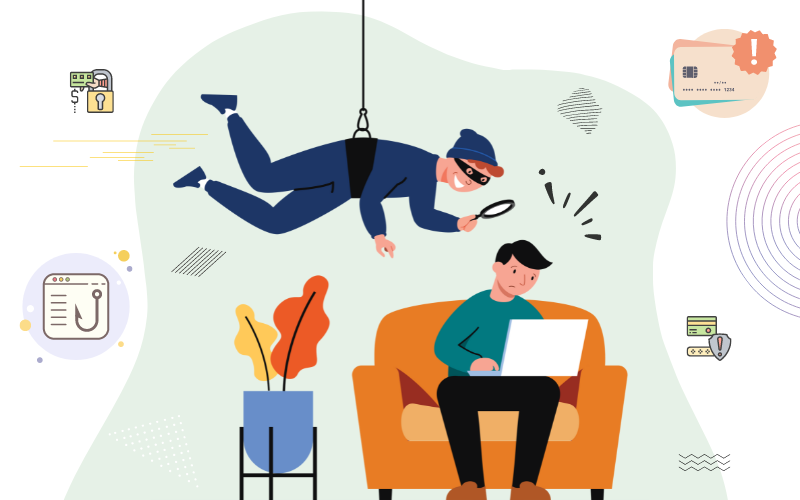


In today’s digital world, protecting personal information has never been more crucial. Many people use the terms identity theft and credit card fraud interchangeably, but they are not the same. Understanding the difference between these two types of fraud is essential for safeguarding your personal and financial data. In this blog post, we’ll break down the key distinctions between identity theft and credit card fraud, helping you stay better informed and protected.
Identity theft occurs when someone unlawfully uses your personal information, such as your Social Security number, driver’s license, or bank account details, to commit fraud. It can have long-lasting effects on your credit score, finances, and personal security. Here are some common ways identity theft can happen:
Once a thief has your personal information, they may take out loans, open credit cards, or even commit crimes in your name. The damage caused by identity theft can take years to resolve.
Credit card fraud is a type of identity theft, but it is more specific in nature. It involves the unauthorized use of your credit card or credit card number to make purchases or withdraw funds. Credit card fraud typically happens when:
While credit card fraud can be financially damaging, most credit card companies offer fraud protection services, meaning that victims of credit card fraud are often reimbursed for fraudulent charges.
Scope: Identity theft involves a wider range of personal data, including Social Security numbers, tax records, and bank accounts, while credit card fraud is focused solely on your credit card or account details.
Impact: Credit card fraud is usually easier to resolve as many credit card companies provide protection and zero-liability policies. Identity theft, on the other hand, can have long-term effects on your financial well-being and can take years to recover from.
Resolution Time: Credit card fraud is often detected quickly, either through automatic fraud alerts or when the victim notices unusual charges. Identity theft, however, can go undetected for months or even years, making it much harder to rectify.
Monitor Your Accounts: Regularly check your bank and credit card statements for any suspicious activity. Enroll in alerts that notify you of unusual charges or logins to your accounts.
Use Strong Passwords: Ensure that all your online accounts are protected with strong, unique passwords. Use a password manager to generate and store these passwords securely.
Enable Two-Factor Authentication (2FA): Adding an extra layer of security, like a one-time code sent to your phone, makes it harder for hackers to access your accounts.
Shred Sensitive Documents: Always shred old bank statements, utility bills, and any other documents that contain personal information before disposing of them.
Beware of Phishing Scams: Be cautious when clicking on email links or providing information on websites. Ensure that the websites you use for shopping or banking are secure and start with “https://”.
Consider Credit Monitoring: Credit monitoring services can alert you to potential signs of identity theft, such as new credit inquiries or accounts opened in your name.
If you suspect identity theft or credit card fraud, take immediate action. Here’s a step-by-step guide:
Contact Your Credit Card Issuer: Report unauthorized charges and have your card canceled and reissued.
Freeze Your Credit: A credit freeze prevents new accounts from being opened in your name. Contact the major credit reporting agencies (Experian, Equifax, and TransUnion) to place a freeze on your credit.
File a Report: Report identity theft to the Federal Trade Commission (FTC) and, if necessary, file a police report. For credit card fraud, ensure you report it to your card issuer.
Change Your Passwords: Change the passwords for your financial and online accounts, especially if you suspect your data has been compromised in a data breach.
While identity theft and credit card fraud are both forms of financial fraud, their differences are significant. Credit card fraud generally has a shorter recovery time and financial institutions often provide protection, whereas identity theft can be more complex and have long-term consequences. By staying vigilant and following the tips mentioned above, you can reduce your risk of falling victim to either type of fraud. Remember, prevention is the best defense when it comes to protecting your personal and financial information.
Copyright © 2025 ・ SafeIDWatch ・ All Rights Reserved